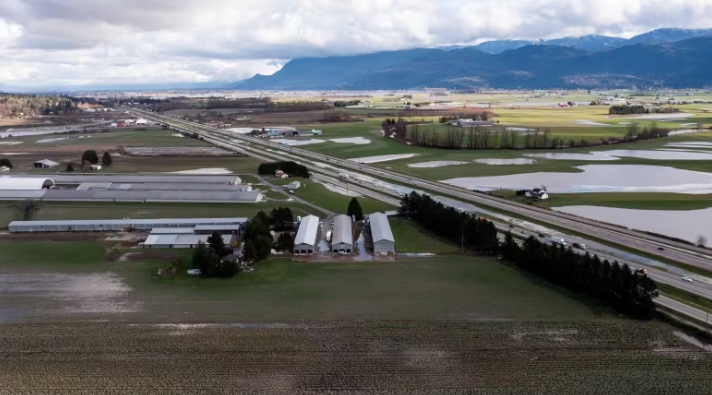Federal government to invest more than $500M in B.C. flood recovery

2021 flooding most expensive disaster in B.C. history, insurance bureau says
The federal government says it is giving more than half-a-billion dollars to B.C. to help deal with ongoing recovery costs after 2021’s devastating floods.
Federal minister for emergency preparedness Bill Blair was in Abbotsford — one of the many communities hit hard by flooding in November 2021 — on Thursday to announce a $556,955,880 payment to the province through the Disaster Financial Assistance Arrangements (DFAA) program.
According to the Government of Canada, this brings the total amount of money given to B.C. through that program to more than $1 billion.
On Nov. 13, 2021, heavy rain began to fall across much of the province. Within days, communities were virtually underwater as thousands of people were displaced and farmlands were destroyed. Thousands of livestock perished and five people died in a mudslide as a result of the downpour.
- Ottawa can’t expect local government to handle cost of climate disaster alone, says B.C. mayor
The rains swelled numerous rivers, which washed away bridges and stretches of highway, cutting off the Lower Mainland from the rest of the country.
“The area was unrecognizable,” Abbotsford-Mission MLA and Minister of Agriculture Pam Alexis said on Thursday.
“It was just unimaginable the kind of damage we saw.”
- Ottawa should help B.C. create better flood relief plan, Senate report finds
More than a year later, British Columbians are still rebuilding.
The Insurance Bureau of Canada has estimated the cost of insured flood damage was at least $450 million, making it the most expensive disaster in B.C. history.
Provinces and territories can apply for DFAA assistance in the event of a large-scale disaster within six months of it happening.
- 1 year later, British Columbians who lost everything reflect on devastating floods
Once the event has been designated under the DFAA, provinces and territories have up to five years to submit their final claim, to cover the cost of things like evacuation operations, restoring public works and infrastructure and replacing or repairing basic, essential personal property of individuals, small businesses or farms.
Blair said the province will work with First Nations, regional and municipal governments and businesses to determine how the money will be allocated.
Related News
Trade war, slumping border traffic: What does that mean for the Gordie Howe bridge?
Amid U.S. President Donald Trump’s tariffs which have triggered a trade war with Canada, cross-border trips haveRead more
Trump administration threatens Harvard’s foreign enrolment, tax-exempt status
U.S. Homeland Security Secretary Kristi Noem speaks during an event on April 9, in Washington,Read more
